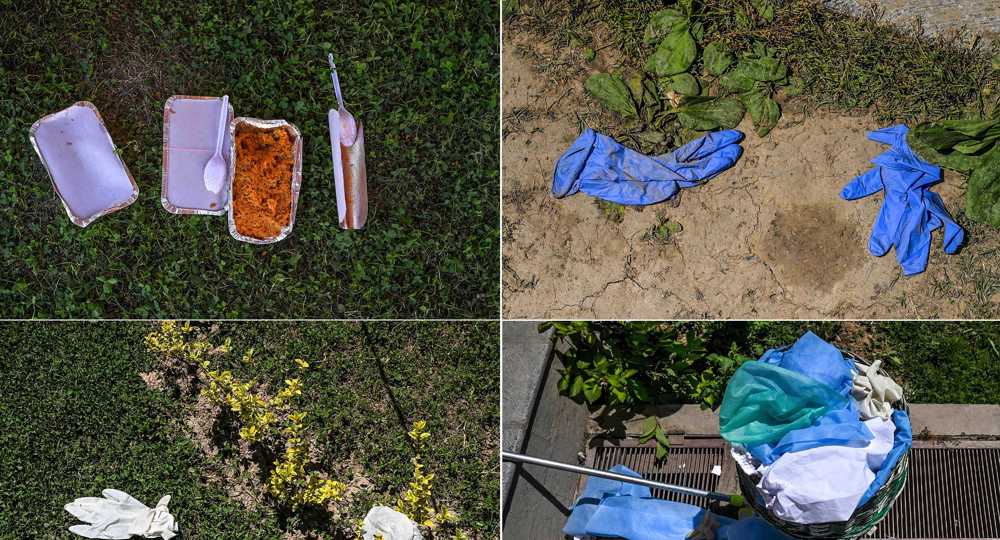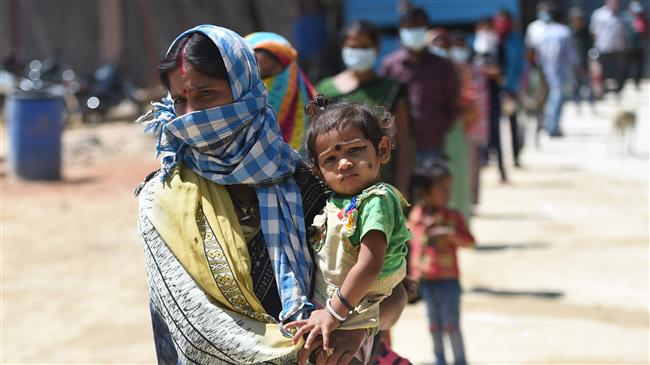India sets world record of highest single-day spike of COVID-19 cases
India has registered a record new 78,761 coronavirus cases, the world’s highest single-day increase since the pandemic began, just as the government began easing restrictions to help the country’s battered economy.
The surge raised India’s tally to more than 3.5m, and came as the government announced the reopening of subways in Delhi. A limited number of sports and religious events will also be allowed from next month.
A country of 1.4 billion people, India has the fastest-growing daily coronavirus caseload of any country in the world. It has reported more than 75,000 infections for the fourth consecutive day.
One of the reasons is testing: India conducts nearly 1m tests every day, compared with 200,000 two months ago.
A significant feature of India’s Covid-19 management, however, is the growing rate of recovered patients. On Sunday, the recovery rate reached nearly 76.5%.
The health ministry credited its strategic policy of “testing aggressively, tracking comprehensively and treating efficiently” in supervised home isolation and hospitals.
But fatalities continue to mount and soon India will have the world’s third-largest death toll, after the US and Brazil, even though it has had far fewer deaths than those two countries.
India is reporting about 1,000 deaths a day. So far, more than 63,000 Indians have died from the disease.
Even as eight Indian states remain among the worst-hit regions and contribute nearly 73% of the total infections, the virus is spreading fast in the vast hinterlands, with health experts warning that the month of September could be the most challenging. Earlier this week, members of a small secluded tribe in the remote Andaman and Nicobar islands tested positive for the coronavirus.
So far, the biggest contributor to the new surge has been the western state of Maharashtra, home to the commercial capital of Mumbai. It alone has accounted for more than 24,000 deaths and nearly 21% of all cases.
India’s economy – the fifth largest in the world – has been severely hit by the pandemic. But despite the surging number of cases the Prime Minister Narendra Modi and his team have been pushing for a return to normalcy to ease the pain.
On Saturday, the federal government said the crowded subway, a lifeline for millions of people in Delhi, would reopen gradually from 7 September. Schools, colleges and cinemas will remain closed until the end of September.
Mutated coronavirus strain found in Indonesia as cases jump
A more infectious mutation of the new coronavirus has been found in Indonesia, the Jakarta-based Eijkman Institute for Molecular Biology said on Sunday, as the Southeast Asian country's caseload surges.
Indonesia reported 2,858 new infections on Sunday, data by the health ministry showed, below the previous day's record 3,308 but above the past month's daily average. Its total number of cases was 172,053, with 7,343 COVID-19 fatalities.

The "infectious but milder" D614G mutation of the virus has been found in genome sequencing data from samples collected by the institute, deputy director Herawati Sudoyo told Reuters, adding that more study is required to determine whether that was behind the recent rise in cases.
The strain, which the World Health Organization said was identified in February and has been circulating in Europe and the Americas, has also been found in neighboring Singapore and Malaysia.
Syahrizal Syarif, an epidemiologist with the University of Indonesia, warned Indonesians must remain vigilant, as his modeling suggests the country may see its caseload rise to 500,000 by the end of the year.
"The situation is serious .... Local transmission currently is out of control," Syarif said, adding that the number of infections found daily could have been much higher if laboratories were able to process more specimens in a day.
The capital Jakarta on Sunday saw a record daily increase of more than 1,000 cases, which the city government linked to a higher mobility rate during a mid-August independence celebration.
"There needs to be an awareness and a collective effort, be it from the government or the people, in addressing the rising number of cases," Dwi Oktavia, an official at the Jakarta health agency, said in a statement, urging people to stay at home and wear a face mask when they must go out.
(Source: Agencies)
Russian court orders Google to pay staggering fine of $20 decillion
Yemeni forces carried out five operations in Haifa, targeting six ships, in one year: Report
VIDEO | US-Israeli war on West Asia
Israeli war machine fails to penetrate Lebanon despite barbaric bombardment: Houthi
VIDEO | Is West's dominance over?
VIDEO | Five Syrians killed in Israeli airstrikes on al-Qusayr near Homs
VIDEO | South African resistance leaders reflect on ways to overcome Israeli aggression
VIDEO | Press TV's news headlines














 This makes it easy to access the Press TV website
This makes it easy to access the Press TV website